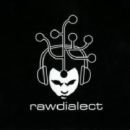As a child, I grew up listening to rap music and was influenced by hip hop culture. There was a “golden age”, in hip hop that highlighted positive aspects of African American culture during the late 80’s and early 1990’s. This “conscious” hip hop movement sparked an interest within me to learn more about African American history. It was hip and cool, during that time to dress in a style that showcased Black pride. So, it was with no hesitation, that I allowed, even encouraged, my son to listen to rap and watch music videos. Within weeks, I noticed he adapted a vocabulary that included slang and some disrespectful words. He was also wearing over-sized jeans so low that his underwear was showing. Being the parent of a teenager, I thought I was pretty knowledgeable, about the popular music that kids listen to. Through this experience with my son, I soon became aware of a negative downturn within rap and hip hop that is alarming.
This downturn caused me to monitor and somewhat censor my son’s exposure to hip hop. Thing’s were progressing quite well, no hip hop, no negativity in our lives. So I thought. I was totally oblivious to the fact that his environment may have influenced his change in behavior, not just the music. My son and I live in Park Heights, Baltimore City. A neighborhood engrossed in drug abuse and crime. Not to mention, there is a tremendous amount of crime in neighborhoods across the country, ranging from the inner city to the suburbs. Rap and hip hop exhibit this reality, the music is a reflection of the world we live in. The artists present the truth of life in the turbulent inner cities in America. Realism is definitely elevated through rap and hip hop. Rap and hip hop music is not destroying our communities and the futures of our children. We as a society continue to allow our communities to fail, become overrun with drugs, violence and poverty, and neglect the needs of our children. I, along with others in the community, must be held accountable to ensure the success of our children.
My son and I sat down and listened to various types of rap and hip hop music. We had to balance out the negative with the positive. Unfortunately, I will never be able to totally shield him from the ills of this society. Nor, do I have to constantly expose him to lyrics filed with profanity and tales of misdeeds and violence, in an effort to be “cool” amongst his peers. I have to explain to my child, that this society has many problems. We have to persevere, succeed, and simply just try to give back to our troubled youth, hoping that this will have a positive impact on our community.
Placing the blame on rap and hip hop in regards to my son’s behavior, was an excuse I made, it was an easy way out. I took this route overlooking the fact that I needed to dig deeper into other factors that may have had an influence on his behavior. Parents and concerned citizens don’t necessarily have to totally cease all rap and hip hop from our children’s listening pleasure to counteract the problems. We must expose our children to those artists who are still “cool”, but positive and uplifting. Will Smith, Queen Latifah, and Common, are just a few names in hip hop culture, whose music surpasses negativity. Consumers have to ensure through our monetary purchases, that we support these artists. The public must demand that radio and television stations play more constructive and positive music.
The problem is “bigger than hip hop”. I use that phrase from the lyrics of a song by rap group “Dead Prez”. The lyrics tell a story of lives destroyed by depravation, violence, drug abuse and injustice suffered by minority youth in the inner cities. Sadly, sometimes it’s an endless cycle that continues from generation to generation. Hip hop and rap music give a “voice” for those trapped in the ghetto, in the cycle, to tell their plight to mainstream America. This “voice” helped to open a dialogue between my son and I . Hip hop and rap music is also the “voice” of young urban America, one that needs to be heard, and listened to, not silenced or censored.





